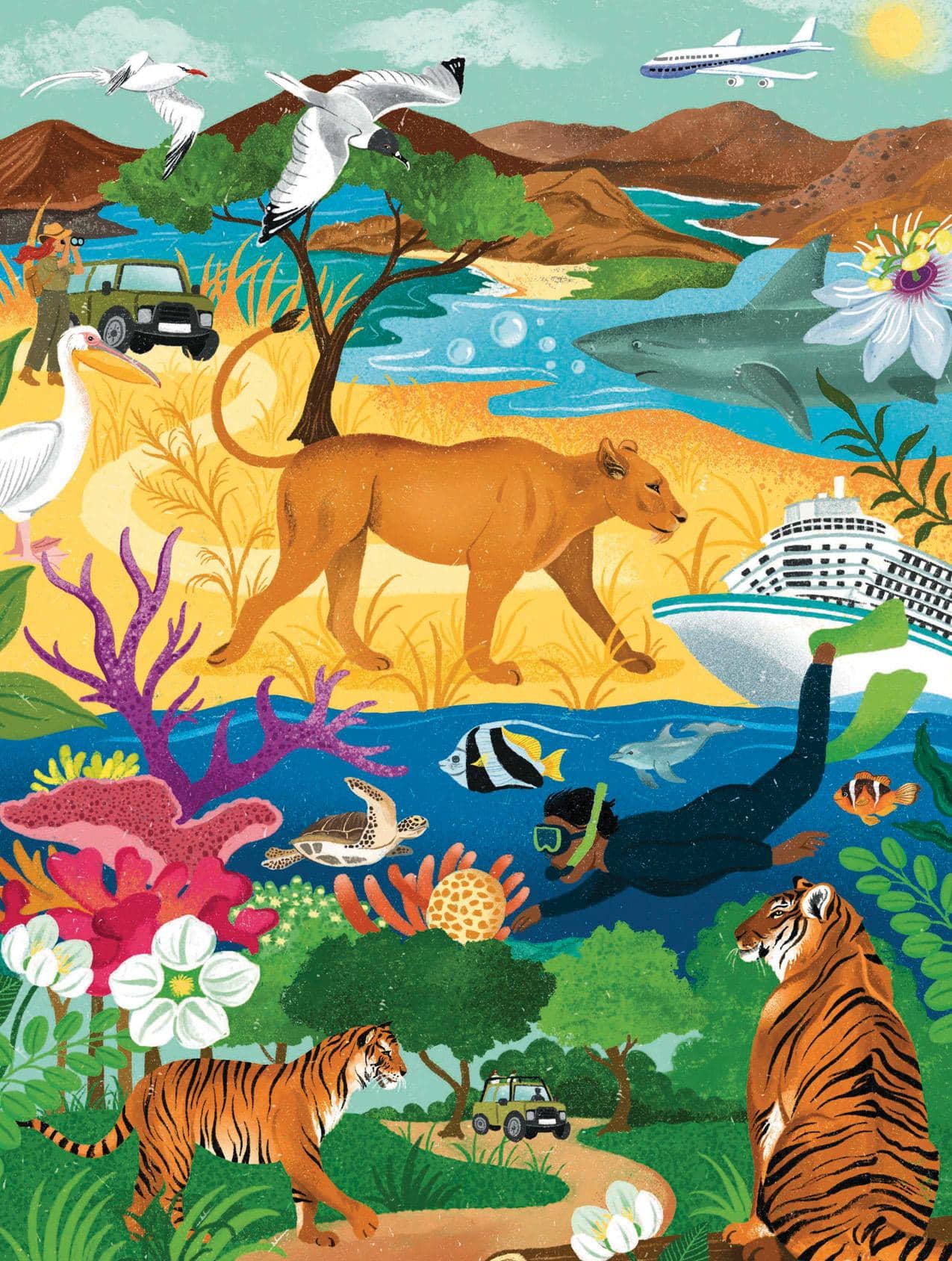
I smelled lady liuwa before i saw her. To be more accurate, I smelled the remnants of her dinner – a wildebeest reduced to a fly-blown pile of flesh, fur, horns and hooves. From the safety of my four-wheel drive, my gaze met those of the culprits lounging in the shade of a snake bean tree: one, two, three pairs of amber leonine eyes.
Any such sighting is precious. Africa’s lions now number probably fewer than 25,000, hit by loss of habitat and prey, human-wildlife conflict and other threats. But in Liuwa Plain National Park back in 2012, when I enjoyed that aromatic encounter, it was even more remarkable. For many years the female dubbed Lady Liuwa had been alone. Then, after non-profit conservation organisation African Parks took on management two decades ago, lions were translocated in, boosting numbers to 24.
Another population is gradually swelling in Liuwa: tourists. That’s part of the economic equation calculated by African Parks, which currently manages 22 protected areas in 12 countries: multiply tourism to provide sustainable funding for large-scale conservation work.
Of course, the sums of wildlife travel aren’t as simple as more tourists equals happier nature. How much did my visit really contribute to the conservation of Lady Liuwa and her habitat – and was that outweighed by carbon emissions from my flights? Did my presence disturb the animals’ natural behaviour more than it reduced the threat of poaching or benefited local communities?
The question of whether wildlife travel is, on balance, good for wildlife is a complex one – and there’s no simple answer.
Denne historien er fra November 2024-utgaven av BBC Wildlife.
Start din 7-dagers gratis prøveperiode på Magzter GOLD for å få tilgang til tusenvis av utvalgte premiumhistorier og 9000+ magasiner og aviser.
Allerede abonnent ? Logg på
Denne historien er fra November 2024-utgaven av BBC Wildlife.
Start din 7-dagers gratis prøveperiode på Magzter GOLD for å få tilgang til tusenvis av utvalgte premiumhistorier og 9000+ magasiner og aviser.
Allerede abonnent? Logg på

SNAP-CHAT
Justin Gilligan on giant spider crabs and holding hands with an octopus

STEPPE CHANGE
Herds of saiga have returned to Kazakhstan, but there's a fine balance to tread

TREES FOR LIFE
Community is at the heart of conservation in the tropical forests of southern Belize

WHEN DOVES CRY
Turtle doves are now the UK's fastest declining bird species, but the RSPB is on a mission to save them

SURVIVAL OF THE CUTEST
We can't help being drawn to cute creatures, but our aesthetic preferences both help and hinder conservation

LIGHT ON THE NORTH
Spectacular images of Arctic foxes, reindeer and musk oxen reveal the wild beauty and diversity of Scandinavia

ROLLING IN THE DEEP
The super-sized crustacean that lives in the deepest, darkest ocean

LET'S GET TOGETHER
Clay licks deep in the Amazon explode in a riot of colour, with macaws the stars of the show

FEMALE OF THE SPECIES
To sponge or not to sponge? That is the question for the bottlenose dolphins (Tursiops aduncus) living in Shark Bay, Western Australia.

7 nature encounters for the month ahead
WITH NATURALIST AND AUTHOR BEN HOARE